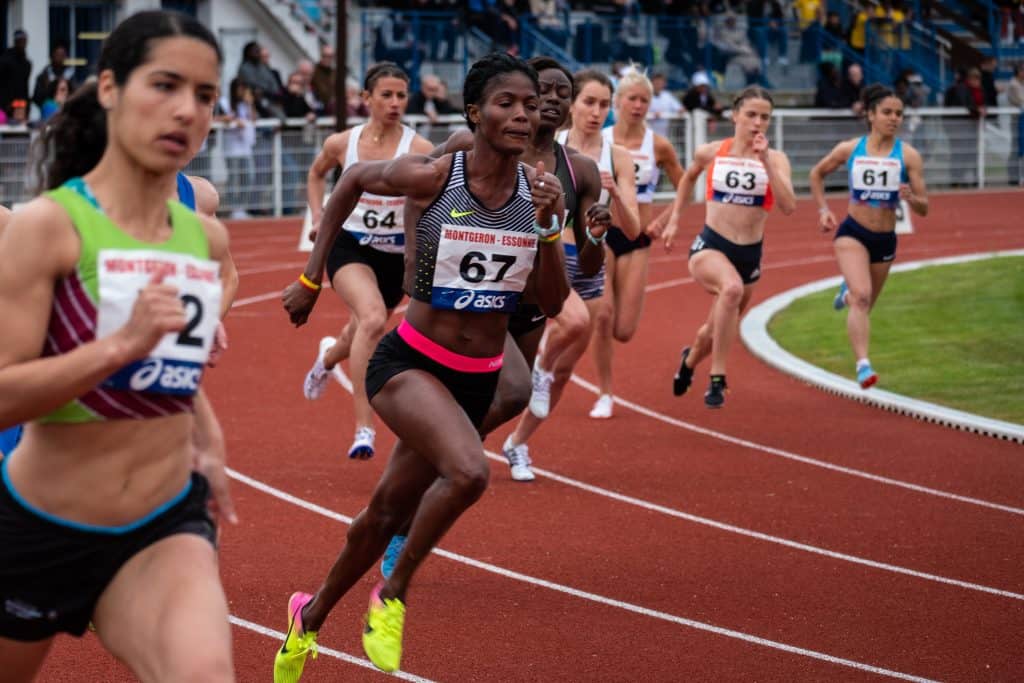Women in Men’s Sports: How Strong Girls Tend Always to Prevail

In many sports, men dominate, and women get comparatively little attention for their competitions and events. This is especially true in soccer, cycling, and, of course, formula 1. Both sexes could even compete against each other in the top class of car racing, but it hasn’t worked for decades.
Formula 1 has preserved its W-series exclusively for women, with opportunities for access to the big racing circuit, but that also seems to be a dead end. How can strong girls prevail in male-dominated sports?
“No Women in Sports”: The Old Olympic Idea
The founder of today’s Olympic Games, Pierre de Coubertin, vehemently opposed the participation of female athletes, but female applause was to serve as a reward for the men. Nevertheless, de Coubertin wanted to see a profound educational and peacemaking effect in this event; equality was not on the agenda.

Generally, it was frowned upon in the 19th century for girls and women to behave “improperly.” Being unseemly included such things as running and jumping around unruly. Too much jostling was said to damage reproductive ability, but only for the ladies, not for the men.
Doctors warned against displacement of the uterus; of course, girls and women would get enough exercise in their household activities anyway. So, as a matter of course, the Olympics restarted in 1896 without the female gender.
A Shortage Of Ladies In Certain Areas
If you watch sports shows today, you’ll see many female faces and hear female names – fortunately! However, the genders are still unequally distributed in typical exercise and brain sports like chess and poker. It starts on a small scale: far fewer girls than boys stray to the chess club at school.

Casino websites and digital poker rooms are often populated by men, even though they offer good, anonymous shelter for women. It often starts with a visit to the comparison platforms and searching for reputable casino bonus reviews.
These websites are available for orientation purposes, mainly for newcomers to poker, roulette, and the like, but also for old hands who want to reorient themselves. There you will find a lot of information about the current providers, their conditions and bonus systems.
Why don’t women dare approach it the way men do? Is it still the old imprint that women do not venture into such realms? Aren’t there enough role models in chess, soccer, poker, and Formula 1?
What About Woman Role Models?
There is no shortage of female role models overall: Successful female athletes, spurring the next generation to excel, are an achievement of our modern times. However, some less successful ladies showcase success in certain areas where few female offspring are coming in. Sometimes, you even have to look for them with a magnifying glass.

Who has heard of Vanessa Selbst, who won $11.9 million in live poker tournaments? She is the most successful female tournament player of all time. It’s a very different story in tennis: Serena Williams, Steffi Graf, and Chris Evert are household names worldwide. Any young girl can take a cue from their tremendous successes.
It’s not the case that everything flies to a girl with a good role model. She, too, has to grit her teeth, train day in and day out, and push through with all her might.
However, where role models are lacking, it becomes even more difficult. In addition, the environment often comes into play at this point, which may express skepticism: “That’s not for girls!” Wouldn’t you instead do dancing or gymnastics?”
Believing In Yourself Is Ultimately Important
The greatest strength lies in asserting oneself despite this. Perhaps together with a mentor who believes in the girl – or sometimes all by herself, until someone finally discovers the female talent.
This requires enormous determination and self-confidence that persists even in storms. In the end, it may not only result in the girl’s own success, but the athlete becomes a door opener for further generations of women who conquer a new field.
This process is fast in some areas and, in others, much slower. Women’s soccer is finally getting more attention, and the strength of the international women’s leagues is remarkable. They are focused on other sports, than just tennis. They are doing more than to block wind for tennis.
However, there are still problems in Formula 1; in the eyes of many, women do not fit nicely behind the wheel of high-speed cars. Maybe that’s why young female drivers don’t dare, even though it’s made more financially accessible for them. Or are some sports not conquered by women?









